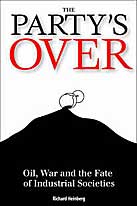|

(In accordance with Title 17 U.S.C.
Section 107, this material is distributed without profit
to those who have expressed a prior interest in receiving
the included information for research and educational
purposes.)
White House is ambushed by criticism from America's military
community
By Andrew Gumbel in Los Angeles
20 September 2003
George Bush probably owes his presidency to the absentee
military voters who nudged his tally in Florida decisively
past Al Gore's. But now, with Iraq in chaos and the reasons
for going to war there mired in controversy, an increasingly
disgruntled military poses perhaps the gravest immediate
threat to his political future, just one year before the
presidential elections.
From Vietnam veterans to fresh young recruits, from seasoned
officers to anxious mothers worried about their sons' safety
on the streets of Baghdad and Fallujah, the military community
is growing ever more vocal in its opposition to the White
House.
"I once believed that I served for a cause: 'To uphold
and defend the Constitution of the United States'. Now
I no longer believe that," Tim Predmore, a member of the
101st Airborne Division serving near Mosul, wrote in a
blistering opinion piece this week for his home newspaper,
the Peoria Journal Star in Illinois. "I can no
longer justify my service for what I believe to be half-truths
and bold lies."
The dissenters - many of whom have
risked deep disapproval from the military establishment
to voice their opinions - have set up websites with names
such as Bring Them Home Now. They have cried foul at
administration plans to cut veterans' benefits and scale
back combat pay for troops still in Iraq. They were furious
at President Bush for reacting to military deaths in
Iraq with the phrase "bring
'em on".
And they have given politically embarrassing prominence
to such issues as the inefficiency of civilian contractors
hired to provide shelter, water and food - many of them
contributors to the Bush campaign coffers - and a mystery
outbreak of respiratory illnesses that many soldiers, despite
official denials, believe is related to the use of depleted
uranium munitions.
"It is time to speak out because our troops are still
dying and our government is still lying," Candace Robison,
a 27-year-old mother of two from Krum, Texas, and a politically
active serviceman's wife, told a recent protest outside
President Bush's Texas ranch. "Morale is at an all-time
low and our heroes feel like they've been forgotten."
How deep the anti-Bush sentiment
runs is not yet clear, but there is no doubt about its
breadth. Charlie Richardson, co-founder of a group called
Military Families Speak Out, said: "Our supporters range
from pacifists to people from long military traditions
who have supported every war this country has ever fought
- until this one.
"Many people supported this war
at the beginning because they believed the threat from
weapons of mass destruction and accepted the link between
Saddam Hussein and al-Qa'ida ... Now they realise their
beliefs were built on quicksand. They are very angry
with the administration and feel they've been duped."
Most of the disgruntlement expressed in the field has
of necessity been anonymous, so Tim Predmore's counterblast
in the Peoria Journal Star felt particularly powerful.
Having been in the army for five years, he is just finishing
his tour of duty in Iraq. He wrote that he now believes
the Iraq war was about oil, not freedom, "an act not of
justice but of hypocrisy.
"We have all faced death in Iraq without reason or justification," he
added. "How many more must die? How many more tears must
be shed before Americans awake and demand the return of
the men and women whose job it is to protect them rather
than their leader's interest?"
Less visible, but no less passionate,
has been the ongoing voicing of grievances over the internet.
A prominent military affairs specialist, David Hackworth,
keeps a website filled with angry reflections on conditions
in Iraq for both the military and the local civilian
population, and the government that put the troops there. "Imagine this bastard getting
away with such crap if we had a draftee army," runs one
typically scabrous anti-Bush line from Mr Hackworth.
More considered analysis is also
available online, such as this reflection from a 23-year-old
serving in the US Air Force, who wonders what the Iraq
mess is going to do to the future of the US military: "The
powers that be are destroying our military from the inside,
especially our Army.
"How many of these people that are 'stranded' (for lack
of a better term) in Iraq are going to re-enlist? How many
that haven't deployed are going to re-enlist ... how many
families are going to be destroyed?" he asked.
One big rallying point for the critics
is the Pentagon's budget plan, which proposes cutting
$1.8 billion (£1.1bn)
from veterans' health benefits and reducing combat pay
from the current $225 a month to $150, which is where it
stood until the Iraq war began in the spring. The budget
will not be finalised until later this month, and the White
House - embarrassed by editorials in the Army Times and
by news stories in the mainstream press throughout America
- says it won't insist on the combat pay cutback.
Another rallying point is the lack of official explanation
for more than 100 cases of respiratory illness in the Middle
East. According to the Pentagon, 19 soldiers have required
mechanical ventilation and two have died. Military personnel
believe the use of depleted uranium may have played a part
in this mystery illness.
© 2003 Independent Digital (UK)
Ltd

The
PARTY'S OVER
Oil, War and the Fate of Industrial Societies
By Richard Heinberg
Now Available!
HERE
|